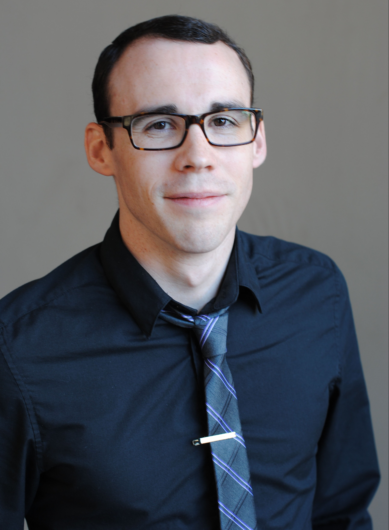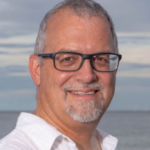Arizona Consortium for Community Engagement, Innovation, and Learning on Consent-Based Siting (CCEIL-AZ)
Program Areas – Responsible Innovation, Science and Technology Policy, Education and Engagement
Partners for Narratives
The futures narratives partners will convene a hackathon with science fiction writers, artists, experts and instructional designers to develop compelling narratives of nuclear waste futures that will inform the following phases of the project.
 Joey Eschrich
Joey Eschrich
Managing Editor, Center for Science and the Imagination, Arizona State University
Assistant Director, Future Tense
Joey Eschrich (he/him) is the managing editor at the Center for Science and the Imagination at Arizona State University and assistant director of Future Tense, a partnership of ASU, Slate magazine, and New America on emerging technologies, culture, and society. He has coedited a number of books of fiction and nonfiction, including Cities of Light (2021), created in partnership with the U.S. National Renewable Energy Laboratory; A Year Without a Winter (2019), named one of the best Art Books of the Year by the New York Times, and Visions, Ventures, Escape Velocities (2017), which was supported by a grant from NASA. He is the coeditor of Imagining Transmedia, a collection of essays forthcoming from the MIT Press in 2024. From 2016 through 2022, he ran Arizona State University’s Everything Change global climate fiction contests with colleagues at the Virginia G. Piper Center for Creative Writing. He hosts CSI Skill Tree, a series of virtual conversations on how video games envision possible futures and build thought-provoking worlds, and edits the Imaginary Papers newsletter on science fiction, futures thinking, and imagination.
 Clark A. Miller
Clark A. Miller
Professor and Director, Center for Energy & Society
Arizona State University
Clark Miller is a theorist and designer of techno-human futures. His work aims to improve people’s ability to design and operate technological systems and navigate technological change in ways that cultivate human thriving and justice, not least by understanding how techno-humans imagine, know, and construct their technological instruments and environments and, in the process, their techno-human selves and the technological Earth.
Clark’s most recent books “Cities of Light: A Collection of Solar Futures,” “Accelerating Decarbonization of the US Energy System,” and “The Weight of Light: A Collection of Solar Futures are all related to his current research enterprise focused on the social drivers, dynamics, and consequences of energy system change and the imagination and construction of human-centered global energy futures.
He is also the co-author of “The Practices of Global Ethics” (with Frederick Bird, Sumner Twiss, Kusumita Pedersen, and Bruce Grelle). He is the editor of “Changing the Atmosphere: Expert Knowledge and Environmental Governance” (with Paul Edwards); “Arizona’s Energy Future” (with Sharlissa Moore); “Nanotechnology, the Brain, and the Future” (with Sean Hays, Jason Robert, and Ira Bennett); “Science and Democracy: Making Knowledge and Making Power in the Biosciences and Beyond” (with Stephen Hilgartner and Rob Hagendijk); and “The Handbook of Science and Technology Studies” (with Ulrike Felt, Rayvon Fouche, and Laurel Smith-Doerr).
Clark A. Miller received his BS in electrical engineering from the University of Illinois (’90) and his PhD in electrical engineering from Cornell University (’95). From 1995-1999, he held postdoctoral positions in the Department of Science & Technology Studies at Cornell University and the Belfer Center for Science and International Affairs at the Harvard Kennedy School of Government. He has previously held faculty positions at Iowa State University and the University of Wisconsin-Madison, where he taught for six years in the Robert M. La Follette School of Public Affairs, the Robert and Jean Holtz Center for Science and Technology Studies, and the Nelson Institute for Environmental Studies.
 Ruth Wylie
Ruth Wylie
Assistant Director
Associate Research Professor, Mary Lou Fulton Teachers College
Ruth Wylie is the assistant director of the Center for Science and the Imagination and an associate research professor in the Mary Lou Fulton Teachers College. Ruth earned her PhD in Human-Computer Interaction at Carnegie Mellon University in 2011 and her bachelor’s degree at the University of California, Berkeley in Cognitive Science with minors in Computer Science and Education. Ruth concentrates on interdisciplinary, translational research that leverages knowledge and insights from theory and laboratory studies to answer real-world problems. Her previous research projects have been on the design, development, and implementation of educational technology for students and teachers in middle schools, high schools, and universities